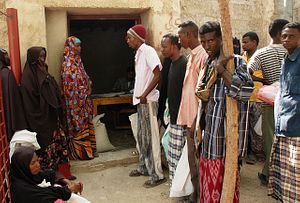Saudi warplanes continue pounding Houthi strongholds across Yemen. Even though the Saudis have warned civilians to leave these areas, civil casualties continue to rise. By mid May, it was reported that at least 1527 people had died, 646 of them civilians.
After two months, the conflict shows no sign of ending. Saudi-led attacks have not been able to repel the Houthi forces. Ahead of another bid for talks, civilian casualties are only like to rise. Calls for an immediate ceasefire voiced by the Iranians, suspected of supporting the Houthi movement, have been ignored by Saudi Arabia and its coalition.
Efforts to reach a peaceful resolution are likely to be hampered by the fact that Saudi Arabia has the support of the majority of Arab countries, including Qatar, the United Arab Emirates, Kuwait, Bahrain, Sudan, Jordan, Morocco, and Egypt. U.S. support is another factor behind the lack of international pressure. Washington and other Western countries appear unlikely to take an active role in peace negotiations before Saudi Arabia’s mission has been completed.
In the meantime, civilians will continue to pay the price.
A Role for Indonesia?
Given competing interests, few expect that the United States, the West, or even Arab countries will be able to do much to achieve a peaceful resolution anytime soon. This is prompting some parties to look for alternatives, even among those without experience mediating conflicts in the Middle East. One potential player is Indonesia. It has been asked by the Organisation of Islamic Countries (OIC) and several other parties to play a more active role in ending the conflict in Yemen. But can and should Indonesia fulfill this responsibility? In fact, Jakarta could play an important mediating role in the ongoing Yemen conflict, for several reasons.
First, as the world’s largest Muslim populated country, Indonesia enjoys positive diplomatic ties with all countries involved in the conflict, especially Iran, Saudi Arabia, and Yemen. This would see Jakarta well placed for involvement in conflict mediation.
Second, although Indonesia is geographically remove from the conflict, it wants peace in both Saudi Arabia and Yemen. There are thousands of Indonesian students in Yemen, and approximately 221,000 Indonesians visit Saudi Arabia on pilgrimage each year. These numbers should motivate Indonesia to play a greater role in ending the conflict in Yemen.
Third, Indonesia is still widely seen as a moderate Muslim country. This factor is important, not only because it puts the West at greater ease, but also because the conflict in Yemen is inseparable from the rivalry between Sunni and Shia. Arab countries, the majority of them are Sunni, worry that the advances of the Shia Houthi movement could threaten their security. Jakarta could use its moderate credentials to mediate the two sides.
GIven this potential, Indonesia should respond to the calls for it play a more active role in mediating the conflict. There is no need for Jakarta to wait for the UN. It could take advantage of the OIC to immediately draft peace resolutions. Success on this occasion could open the door for Indonesia to play a more active role in the future, not just in Yemen, but also in the wider Middle East.
Muhammad Zulfikar Rakhmat is a postgraduate student majoring International Politics at the University of Manchester. Media Wahyudi Askar is a postgraduate student majoring International Development, Public Policy and Management at the University of Manchester
































